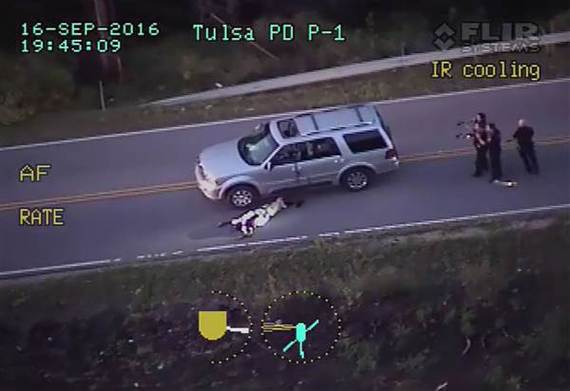Police officers across the country live and work in an environment of violence and toxic stress. They are often the first responders on the scene, whether that is a crime scene or a rescue scene. And it is not particularly easy to "protect and serve" a society as unequal as the United States despite taking an oath. Law enforcement officials must face the day-to-day possibility that death might come at any time. This reality keeps the sympathetic nervous system in a constant state of psychological arousal. Just like members of the armed forces who experience the sound, smell, and images of war, the human body, particularly the brain, does not function well in a state of chronic hypervigilance. Indeed, repeated exposure to traumatic events can leave an indelible mark deep within the recesses of the mind. More importantly, citizens place enormous pressure on cops to function efficiently and safely in this milieu unaware of the psychic toll.
Whether budgetary constraints or the lack of political will, our urban warrior's do not receive the adequate level of human performance training needed to address the rigors of the job to decompress the mind when tragedy strikes. Stress management training is often reduced to a PowerPoint. As a result, many of our officers are expected to carry around an excessive amount of anger and suffering that could impair their ability to efficiently do their job. Psychological stress can make a wallet appear as a weapon when under the influence cortisol. Cortisol is a stress hormone in the body produced by the adrenal glands mounted above the kidneys. This steroid hormone has a blunting effect on the prefrontal cortex of the brain. That particular region is where higher-level executive decision-making occurs. Along with decision-making, neuro-pathways in the subcortical region that facilitate emotional regulation and reactivity are affected as well.
The stress response is then added to centuries-old white racial ideology casting black men and boys as the predator, the criminal, the rapist, and thug. White Americans as a group have been "racially-primed" to view African Americans (males especially) as social pariah, less than the dust of the earth. These "black misandric stereotypes" are unfounded resulting in harsher and more punitive forms of oppressive action toward the black community.
For many, it is hard to wrap one's mind around the recurring 24-hour news cycle reporting yet another death of an unarmed black man or woman at the hands of law enforcement. In the unfolding madness in Tulsa, Charlotte, Memphis, Los Angeles, New York, Chicago and other places, the only answer that makes sense is the biopsychosocial elements of discontent--"epigenetics." It is certainly plausible that whites have been epigenetically programmed to have a pathological aversion toward black Americans. The disease is known in the mental health profession as alexithymia. Our racist past runs deep, and our contemporary realities stubbornly persist thus sowing the seeds of racial animus and discomfort for generations to follow through the process of epigenetic inheritance. In other words, the unexamined white animus felt toward black people is rooted in human biology.
The practice of systemic white racism has left a cruel stain upon the very attribute that makes humanity possible--empathy. There is a mounting body of research on empathy-bias or "superhumanization bias." White Americans tend to attribute superhuman and supernatural powers to black Americans. One example is this idea that blacks are impervious to pain. Another example is projecting mystical qualities to the physicality of the subject. Michael Brown was described as looking like a "demon" in the justification statement made by Officer Darren Wilson who shot and killed him in August of 2014. In the latest case in Tulsa, Oklahoma, Terence Crutcher was shot and killed as a gang of white officers descended upon him after his car stalled on his way home from his community college class. An officer in the helicopter circling overhead can be heard saying, "That looks like a bad dude," as Crutcher lie dying in the street. How he can ascertain that from an aerial view is difficult to grasp. This racialized language reflects dominant white cultural attitudes and beliefs concerning stigmatized minorities awakening embedded human bias while elevating the physiologic stress (i.e., fight, flight or freeze) response.
These ideas have been overtly taught as well as subconsciously transmitted to white people as a group, and are well maintained in the institution of police work, which may explain disproportionate shootings of most unarmed black men compared to whites. The hypervigilance of police work coupled with racist stereotypes is all that is required to provoke an automatic implicit bias reflex. Empathy-bias makes it possible for some police officers to (including AAs) unwittingly gun down black men in cold blood then apply racially-coded language of fear based on centuries-old white racial framing of black gendered stereotypes of "danger" associated with black male bodies. Throngs of white fans celebrate these despised black bodies as they watch their favorite athletes compete on the gridiron and basketball court. These biases are deeply held and mostly invisible and unless directly challenged remain largely intact. The tragedies witnessed across the nation are more than criminogenic; the genocide of black men and women is a public health crisis.

